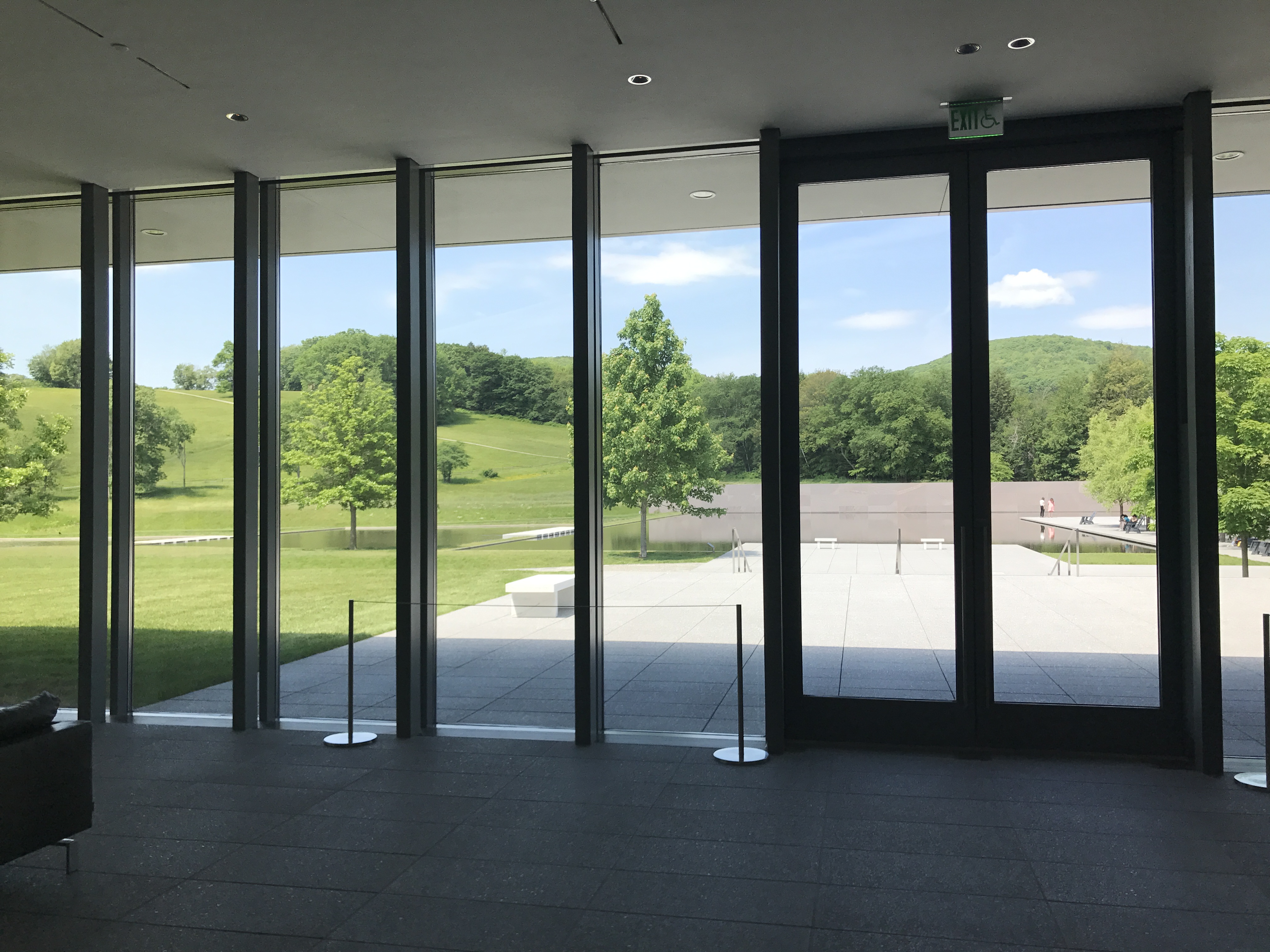Continuing our ongoing tracking of the effect of the Covid-19 lockdown on museums and arts organizations, I penned a column in Apollo magazine today. You can read the full article here (subscription required for more than three articles), the first paragraph is reprinted here as a teaser:
One key question for museums boards, management, and their supporters to ask right now is this: what do they actually want to accomplish when the Covid-19 crisis subsides and the lockdowns end? Is a museum its collection, its location, its staff or its visitors? Until recently we had the comparative luxury of asking these questions one museum crisis at a time. Should a small museum (for example, the Berkshire Museum in Pittsfield, Massachusetts) survive at all costs without the collection that created its very importance? Should it seek a better home for its collection but perhaps lose some of its unique character or even its individual existence (see the Corcoran Gallery of Art’s merger with the National Gallery of Art in Washington, D.C.)? Or should it evolve in a way that is perhaps contrary to its founders’ specific desires (the Barnes Foundation’s move to Philadelphia from the truly sui generis yet remote home in Lower Merion created by Dr Barnes)?
Now, with [read more here]
Read More
Topics:
National Academy Museum,
National Gallery of Art,
Metropolitan Museum of Art,
ICOM,
American Alliance of Museums,
Philadelphia,
AAM,
Association of Art Museum Directors,
International Council of Museums,
Corcoran Gallery of Art,
AAMD,
Barnes Foundation,
Pittsfield,
Berkshire Museum,
Apollo Magazine,
UPMIFA,
endowment,
Uniform Prudent Management of Institutional Funds

Since analyzing the likely consequence of gallery and auctioneer insolvencies last month, we have been keeping an eye on how the economic crisis borne of the COVID19 pandemic is affecting the art world. Essentially every museum in the world has had to close its doors in the last month, with the previously unimaginable effect of a 100% drop in attendance revenue. Every museum, from the largest and best-endowed to the smallest and cash-strapped, is grappling with how to sustain its people, its mission, and its future. There are no easy answers, but the Association of Art Museum Directors issued yesterday an interesting update to its longstanding ethical guidelines concerning deaccessioning and restricted assets. As I remarked in a conversation with ArtNews yesterday on the topic, the question of what—and who—an endowment and an art collection is for have never been more relevant, or more difficult to answer. When Brandeis proposed to close the Rose Art Museum in 2009 in the midst of the last financial crisis, the effects were long-lasting. I have negotiated considerable specific requirements to gifts on behalf of museums and donors to account for what, before that event, many had not considered. What will this catastrophe, which is already far worse, bring?
Read More
Topics:
Brandeis,
Metropolitan Museum of Art,
American Alliance of Museums,
Rose Art Museum,
Association of Art Museum Directors,
International Council of Museums,
Museum of Fine Arts Boston,
AAMD,
Berkshire Museum,
North Adams,
Mass MoCA,
COVID19,
Board of Regents,
Brian Allen,
CARES Act,
Financial Accounting Standards Board,
Clark Art Institute,
National Review

Debate has peaked in the last year or so about the treatment and possible restitution of so-called colonial artifacts in Western (i.e., European and North American) museums. The conversation is important for many reasons, but one interesting facet is the way in which the discussion moved from a peripheral topic to one consuming high-level government attention in a very short amount of time. In the process, institutions that have been devoted for well over a century to artistic, archeologic, and ethnographic displays have found themselves in a very public conversation about the future and even the validity of their mission. This discourse culminated last fall in a report commissioned by President Emmanuel Macron, authored by Bénédicte Savoy of France and Felwine Sarr of Senegal, recommending (among other things, as discussed below), that objects sent to France should be returned if the country of origin requests it. Germany has now joined the conversation with the announcement of a collective declaration addressed to the collection of German federal and state museums.
Read More
Topics:
Berlin,
ICOM,
Deutsches Zentrum Kulturgutverluste,
Germany,
Washington Principles on Nazi-Confiscated Art,
SPK,
Stiftung Preussischer Kulturbesitz,
International Council of Museums,
1970 UNESCO Convention,
Monika Grütters,
Art Law Report,
Capital Requirements Regulation,
Bénédicte Savoy,
Felwine Sarr,
Emmanuel Macron,
Humboldt Forum,
Unter den Linden,
Stadtschloss,
Frederick the Great,
East Germany,
Volkskammer,
Collective Declaration,
Dahlem,
Nama,
Namibia,
Federal Ministry of Culture, Media, and Sport,
Länder,
German South West Africa,
Deutsches Zentrum Kulturverluste,
Ethnological Museum,
Gemäldegalerie,
Staatliche Museen zu Berlin,
Herero
In the course of our work here, I like to call out books and articles that I feel are worthy of praise, usually the in the course of a particular post or issue. After a too-long stay on the corner of my desk awaiting time to read it, I finally finished a book published last year that should be an essential for any collector, or lawyer dealing with clients across borders. Entitled The Art Collecting Legal Handbook (Thomson Reuters), the book is edited by Bruno Boesch and Massimo Sterpi, both notable European practitioners in art and cultural affairs law, at Froriep in London and Studio Legale Jacobacci & Associati in Rome, respectively.
Read More
Topics:
Legislation,
the Middle East,
looted property,
Forgery,
Auctions,
VAT,
Studio Legale Jacobacci & Associati,
authenticity,
London,
Sam Keller,
Julien Anfruns,
droite de suite,
Froriep,
Moral Rights,
Europe,
North America,
Holocaust claims,
California,
Fondation Beyeler,
Howard Kennedy FSI,
Thomson Reuters,
Asia,
Rome,
Restitution,
International Council of Museums,
Massimo Sterpi,
United States,
World War II,
Sabina von Arx,
1970 UNESCO Convention,
Morgan Stanley,
Art Fairs,
Publications,
Litigation,
due diligence,
Immunity from Seizure Act,
Museums,
Bruno Boesch,
1995 UNIDROIT Convention on Stolen or Illegally Ex,
Daniel McClean,
New York
After the 1998 Washington Conference on Holocaust Era Assets and the eponymous Washington Conference Principles on Nazi-Stolen Art that came out of it, it is hardly surprising that a recurring theme has been to assess the progress of those nations that participated and signed on. Equally unsurprisingly, those assessments are usually more anecdotal than empirical, and usually arise out of a particular case or cases in the context of that country’s response.
Read More
Topics:
Graham Bowley,
Macedonia,
Netherlands,
Terezin Declaration,
Mussolini,
Latvia,
Dr. Wesley A. Fisher,
Hungary,
ICOM,
Bulgaria,
Commission for the Compensation of Victims of Spol,
Germany,
Bavarian Minister of Culture,
Nazi-looted art,
Die Welt,
Belarus,
Lex Gurlitt,
Washington Conference on Holocaust Era Assets,
France,
Dr. Ruth Weinberger,
Romania,
Baron Mor Lipot Herzog,
Winfried Bausbeck,
Belgium,
Slovakia,
Vichy,
World Jewish Restitution Organization,
Bundesrat,
Washington Conference Principles on Nazi-Stolen Ar,
Gurlitt,
WJRO,
NS Raubkunst,
Restitution,
International Council of Museums,
Norway,
United States,
Luxembourg,
Looted Art,
World War II,
St. Petersburg,
Poland,
beschlagnahmte Kunst,
Ukraine,
Austria,
Serbia,
Conference on Jewish Material Claims Against Germa,
Italy,
Bosnia,
New York Times,
Monika Grütters,
Slovenia,
Estonia,
Museum and Politics Conference,
National Gallery,
Museum of Fine Arts,
entzogogene Kunst,
Czech Republic





